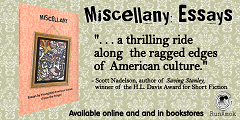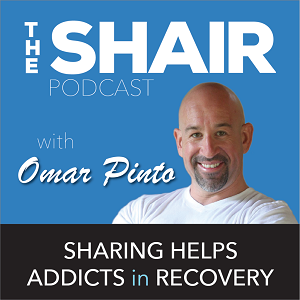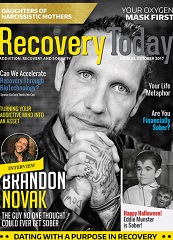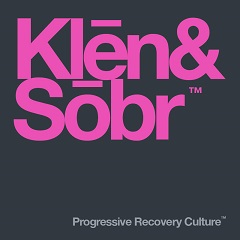Resentment
I heard at a meeting one time about a pair of monks.
They were meditating by a river when a woman asked if they could help her wade across.
The first monk said, “I cannot touch you. It would break my vow of chastity.”
The second monk stood up and carried the woman across the river without a word. When the first monk caught up with the second monk a few miles down the river, he said, “What have you done, brother? Yes, you helped someone in need, but you have broken your vow. Why did you carry her?”
The second monk smiled and said, “I may have touched her but it is you who still carries her.”
The story explains the sticking power of resentment.
I never saw the person who shared the story again, but I’ve remembered it in times of decision. It’s a good reminder of what my late sponsor always told me when I asked him for advice on what to do: no rules, just love.
To understand the word resentment, it helps to break the word down to parts.
-Sent means “feel,” as in sentient or sentimental. Re- the prefix means “again and again.” Resentments are the slights we relive over and over.
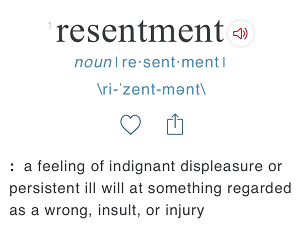
-definition courtesy of Merriam-Webster’s app. It’s a great app.
This should not be confused with trauma. There are memories we will never want to face—experiences that will haunt us for a lifetime. We have no choice in reliving trauma. We do have a choice when it comes to resentments.
The unforgiving loner is a popular archetype in the American myth. I always think of Clint Eastwood in Unforgiven or Denzel Washington in Man on Fire or when the obstinate and obnoxious Bill Murray is vaulted to divine status in St. Vincent. Popular culture seems to value the grudge as if it were a sign of grit.
Get sober and you realize that holding on to past hurt creates a cycle of behavior that only results in new hurt.
We have to let go of our old ways of thinking. This is revolutionary in a time when everyone seems to have an ax to grind. We can begin to shed our false perceptions of others. No longer is the world out to get us. We can live free from the fear of how others feel about the things we do and say, summarized nicely for me by another share I’ve heard at a meeting: “I used to care so much about what other people thought of me. Then I realized that if everyone else thinks about themselves as much as I do, they must not be thinking about me at all.” It is freeing to realize that everyone obsesses over themselves as much as I do. Why imagine sleights that don’t exist? In fact, it’s really none of my business what other people think of me altogether.
There are certain feelings we must relive in order to move on. I have to remember how it felt when I hit bottom. If not, I may deceive myself into thinking it wasn’t all that bad. Each time I say the words: “My name is Mark and I am an alcoholic and an addict”—or, to use the phrasing that mental health advocates are encouraging—“My name is Mark and I suffer from alcoholism and addiction,” I am reminded of the relief I first felt when making that admission, a story recounted here. That relief was so sharp 10 years ago. Today, I need to actively sharpen its effect by becoming grateful for all that sobriety has given me.
Recovery issues seem to surface in parenting all the time.
On a recent walk with my daughter, I realized that, once again, I can learn from my children in ways that they will never understand.
Walking the dog has become a coveted status symbol for our kids. When I say, “I’m taking the dog for a walk,” one of my children will say, “Can I come too?” which then, like a falling domino, makes the other child ask, “I want to walk the dog too!” Walking the dog is one thing. Walking the dog with two mini-walkers who fight for control of the leash is another.

This about sums it up.
The plot thickens in the morning when I need to get to work and the dog needs out. If both children are awake, then they inevitably ask to join me. I have to then say, “You have to put clothes on first,” and twenty minutes later, “Have you brushed your teeth?” I have my eye on the clock as my children flop around and wafer about their clothes and play in the bathroom sink.
The difference between frustration and resentment is the difference between the moment and a lifetime. Do I inform them I am frustrated right now and explain why, or do I explode from the countless hours I’ve spent waiting for them to get ready. That’s where a resentment is lethal. It can tell me I am feeling the wrath of the ages not the anger of the moment.
Today they got outside with my mental clock ticking down to the wire. Then it happened. I was reminded of what I needed in the moment, and what our suffering requires of us to stay sober.
My dog—eager for a long-awaited and highly anticipated strut around the block—takes off down the concrete walkway. I have to catch my daughter before she falls.
“Do you remember what you do when Riley pulls you on the leash?”
“Uh-huh,” she said.
“What do you do?”
“Let it go.”
“That’s right. Just let it go.”
I must let go of a lot to stay sober.
I must let go of what other people might be thinking of me, my obsessive nature, my busy schedule, my old ways of thinking, my old hurt, my old pain, my destructive patterns, my incisive negativity, my swelling doubt, my abrasive impatience, my staunch intolerance, my acute hatred, my obstinate will, my frail will-power, my innate prejudice, my false fear, my perception of your opinion of me, my desire for acknowledgement, praise, and accolades.
Letting go of the need to be early for work is easy when I have my daughter looking up at me as she breaks into the Frozen soundtrack: “Let it go. I can’t hold it back anymore,” and then some mumbling before, “That perfect girl is gone.”

 Previous Post
Previous Post Next Post
Next Post
